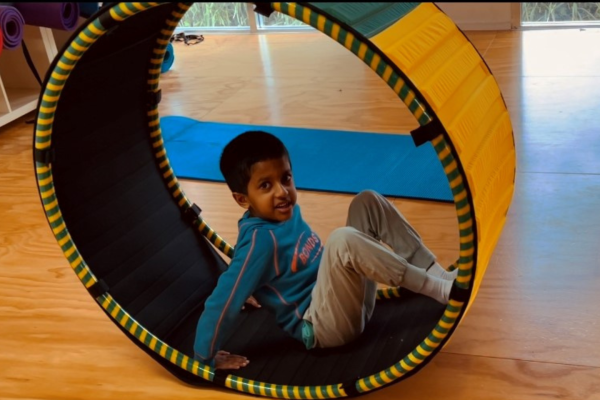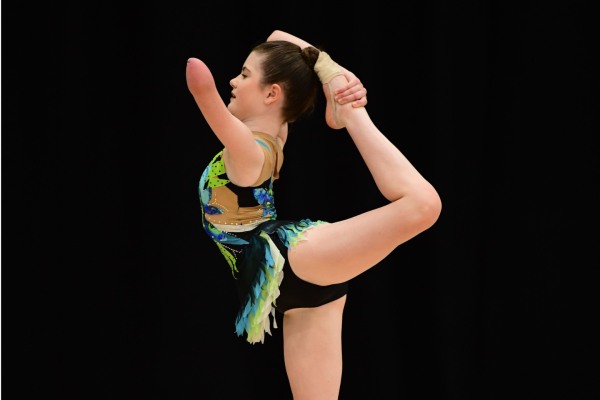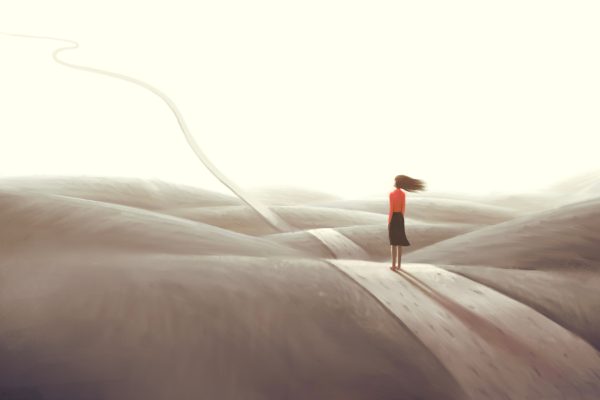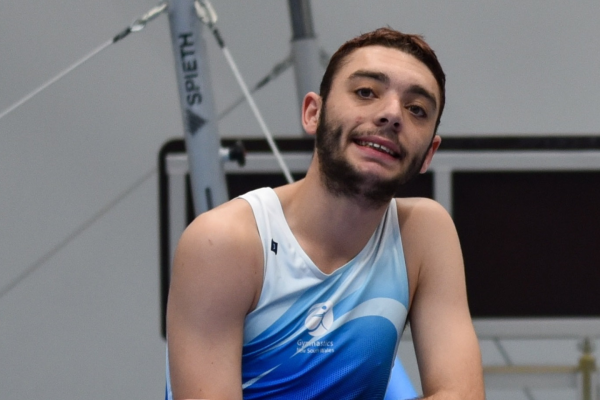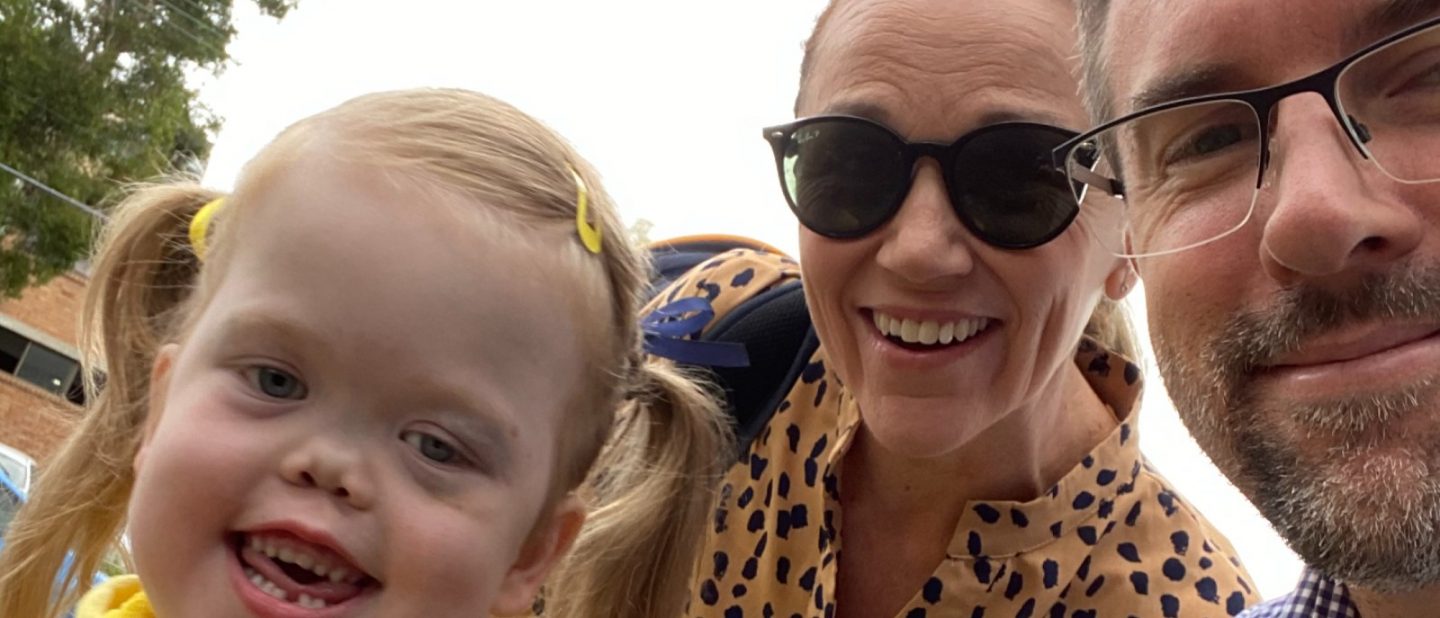
Living with a rare disease: Frankie’s story
Frankie lives with a rare condition called Acrodysostosis type 2, which her mum, Kymie, often refers to as like a Pandora’s Box, because you never know what challenge the condition will bring on a daily basis.
Caused by the mutation of two genes, AcroD affects Frankie in a number of ways – she has developmental delays, level 2 autism, sensory processing disorder, a speech delay, obsessive compulsive disorder (OCD), a ventriculoperitoneal (VP) shunt to support hydrocephalus, food aversions, allergies and more.
NSW-based Kymie and her husband Michael were first made aware that their precious daughter had a problem at six months old. An ENT specialist referred Frankie to the Craniofacial Unit for assessment by a plastic surgeon because of low nasal bridge, which was assumed cosmetic.
“This is when there were first concerns about the size of Frankie’s head and its rapid growth, and fluid on the brain was suspected,” Kymie recalls.
An MRI was booked to determine the extent of the hydrocephalus and what intervention would be required before the family met with a genetic specialist who noticed that Frankie’s hands and feet were a different shape and size.
“It’s absolutely heart breaking to think back to that time when the words “syndrome or condition” casually fell out of the geneticist’s mouth at our first appointment,” she reflects.
“The geneticist explained the condition to the best of his knowledge, which I can only assume was from a rare disease text book or manual, and how Frankie might be affected, giving us a photocopied pamphlet that was written in the 80’s or 90’s and said ‘try not to “Dr Google”, as it will only upset you’.
“We were very lost, heartbroken to an extent and in disbelief this could be happening to our precious baby. It was a rollercoaster of emotions, I think I cried every day for 6 months.
“We didn’t tell anyone, not even my parents for the first few months, as I didn’t even know how to explain it to anyone. I was completely lost, riding a wave of emotions, trying to still be a first- time mum to my baby, and ensuring her needs were met, running a business with my husband and trying to continue life.
“I blamed myself, I thought that I had done something in the pregnancy to cause the condition, eaten something, been exposed to something. I’d failed to keep our precious baby safe.”
They were told Frankie was the only child with the condition in Australia and New Zealand.
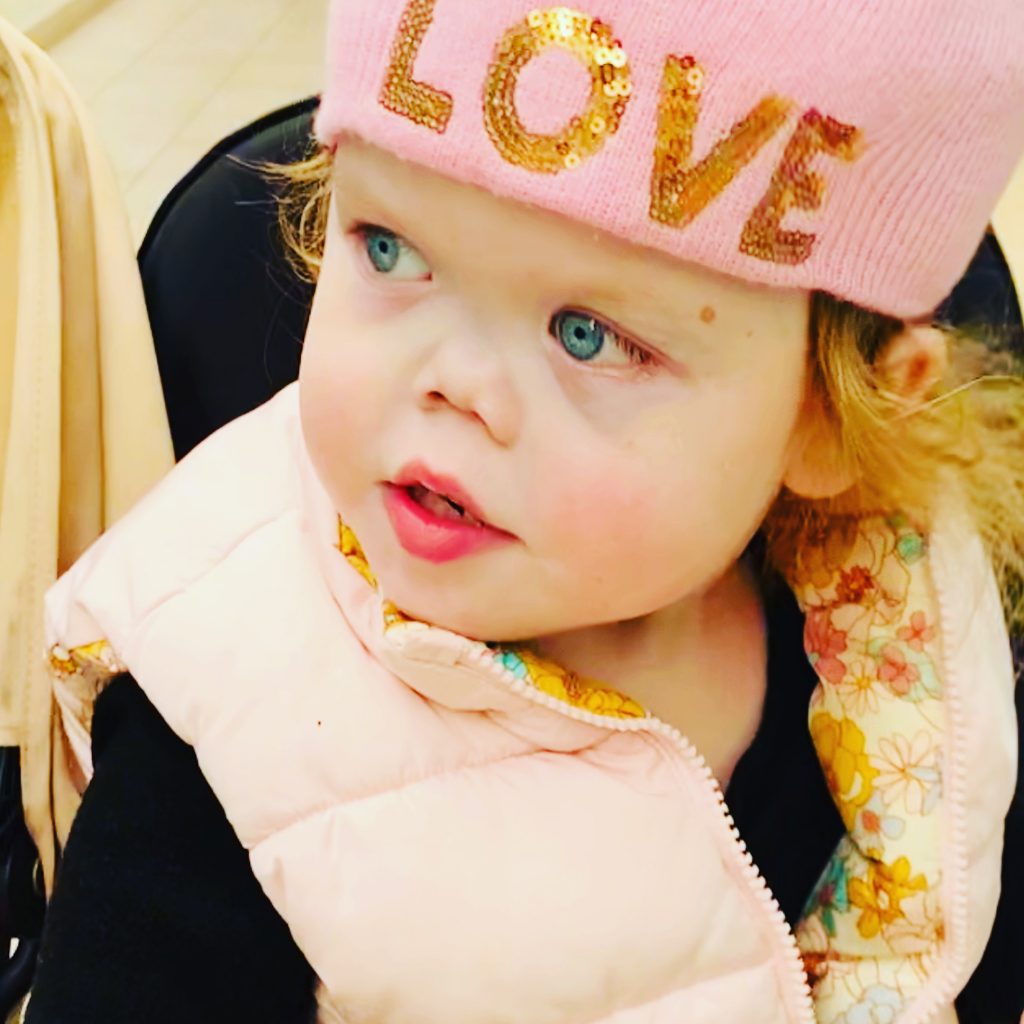
The years since that moment have been a huge journey of learning and acceptance as well as celebration at the arrival of Frankie’s little 2-year-old sister Georgia.
“My mother bear instincts just kicked in, and I became a warrior for my child, reading, researching and looking into every type of early intervention I could start her in, speech, physio, OT, dieticians, specialist paediatricians and so on.
“Michael created a Facebook page in the hope of finding other families and patients. We couldn’t accept that there was no one to talk to, no one that could help us understand what would happen to our baby girl.
“Within a few days of the page being created we had one family asked to join from the USA, and a week later a family from the UK. Within a year we had 30 families and 5 years on we have over 100 families, 6 now in Australia. We have created our own specialist team!”
Kymie was proud to see Frankie start at her mainstream school this year following early intervention at a local primary school and daycare last year.
But there are always fears.
“What will happen if she never really speaks,” Kymie questions.
“Will she even know how to say her name? Get a job? Be able to live on her own? Find or be in love? Will she be bullied or hurt? What if we die, and who will take care of her?”
There are so many unknowns, so Frankie’s family tries not to think too far ahead and simply enjoy the time they spend with their little girl who loves Peppa Pig and bubble-blowing.
“She’s a happy and loving little girl, but we do have deal with meltdowns and behavioural challenges, like most children who have a developmental delay, there are many times of frustration for her due to her speech delay and the traits that come with ASD and SPD.
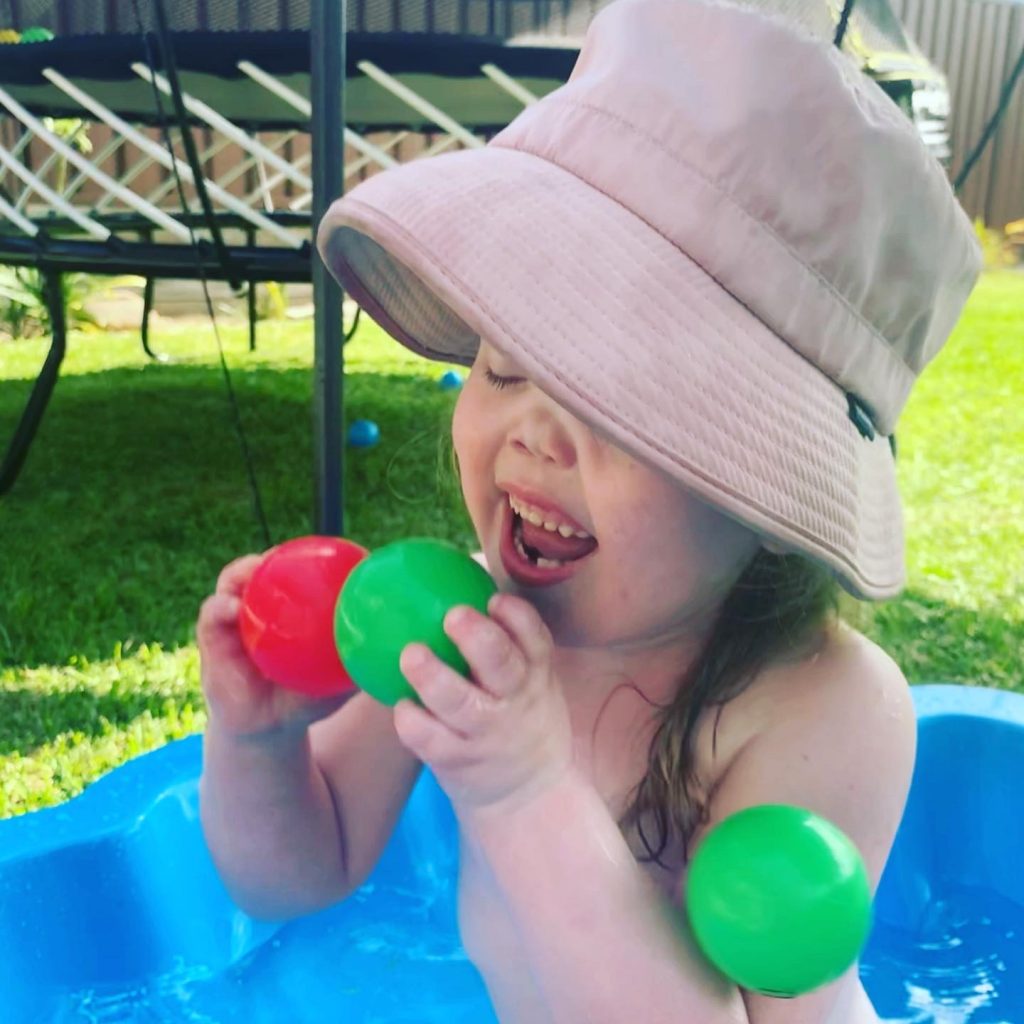

“There is no specialist or miracle cure in the pipeline. And we don’t want to get ahead of ourselves with too much hope.
“We want a happy healthy child first and foremost, and for her to be the best version of herself, and putting any pressure on her and making unrealistic future plans for her doesn’t feel like the right thing to do or in her best interest. We accept who our child is, her disabilities and her abilities. And hope she can grow into a person who can be independent and be able to self-care at some stage in the future. “
Along with other parents in a similar situation, the Gleeson’s established the global charity Acrodysostosis Support and Research, which is dedicated to winning grant money to fund a research grant into the “why”. Kymie also finds solace in updating Frankie’s Facebook Page “Little Frankie BIG World” – telling Frankie’s stories and sharing her stories and achievements to her loving followers.
While everyone’s special needs journey is different, she wants to remind others that you are never alone, no matter how rare your child’s disease or condition is.
“There is someone somewhere in the world that knows something. Join a support group or start a support group, create a website and blog, others will find you,” she advises.
“The AcroD Family has been our saviour, and to know when Frankie is ready to understand who she is and what her conditions is, she will have friends and others just like her. She will never feel alone or isolated because of AcroD.”
For more info visit @acrodysostosis on Facebook and Instagram.



